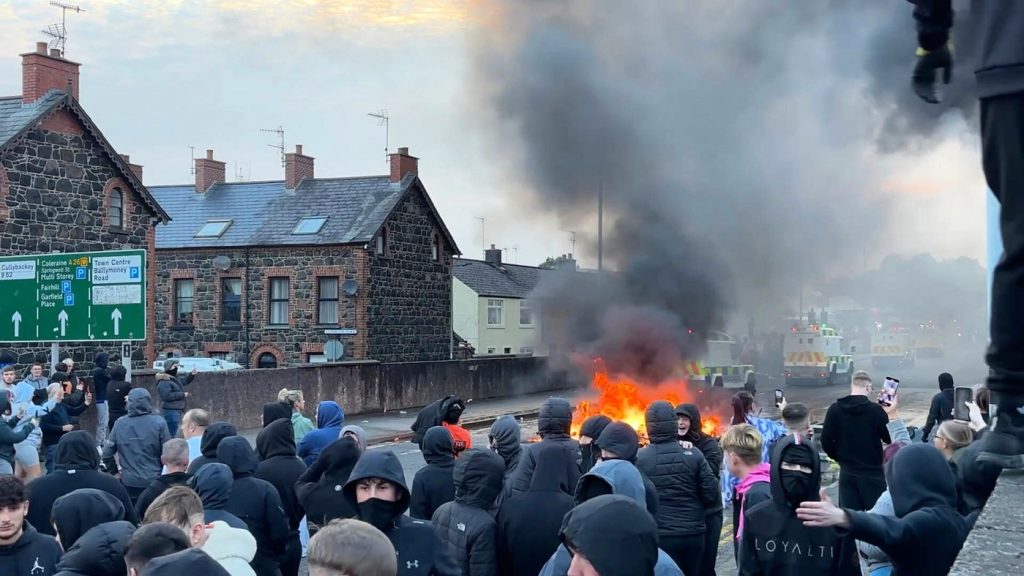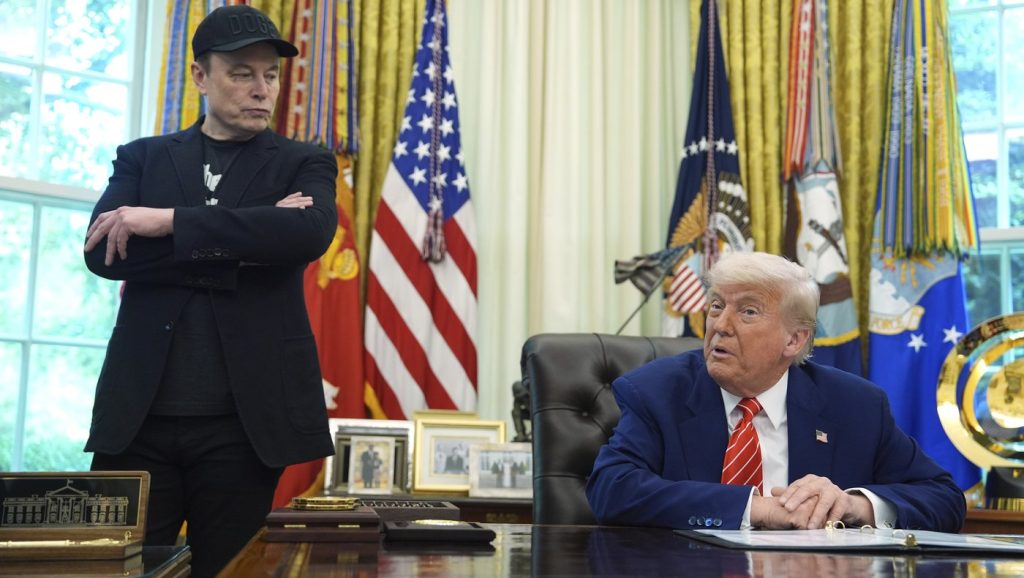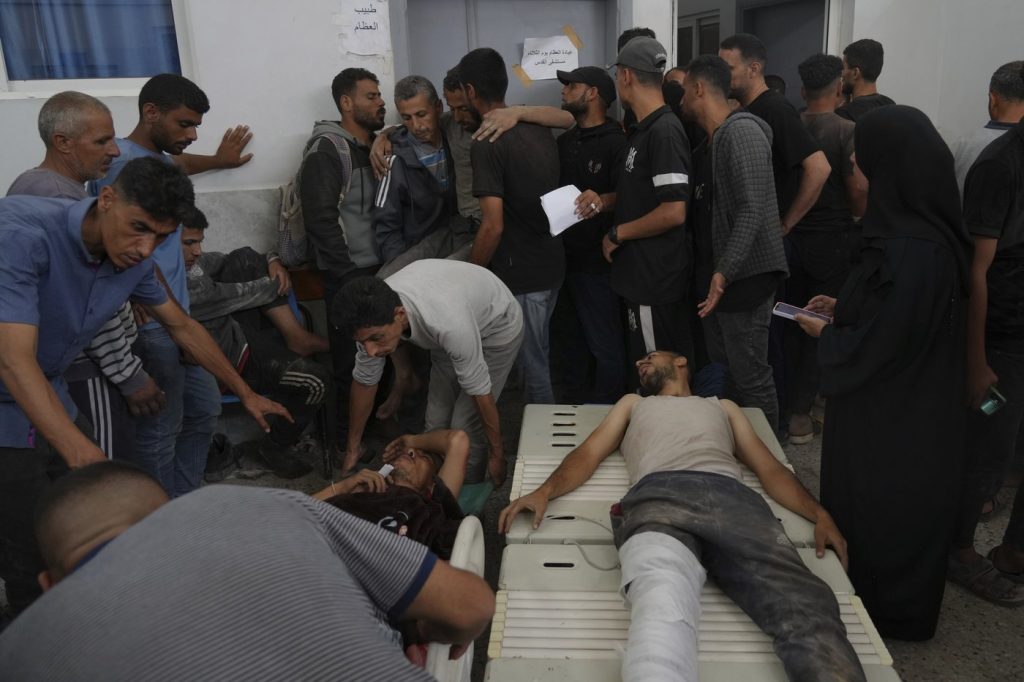Police in Northern Ireland reported that 17 officers were injured during a second night of anti-immigrant violence in the town of Ballymena. Rioters engaged in violent acts, throwing bricks, bottles, petrol bombs, and fireworks, and setting multiple vehicles and houses ablaze. In response, law enforcement utilized water cannon and fired rubber bullets to disperse a crowd of several hundred people. The Police Service of Northern Ireland stated that the unrest subsided around 1 a.m. local time, and five individuals were arrested on suspicion of “riotous behavior.”
What sparked the violence?
The violence erupted on Monday following a peaceful march that aimed to show support for the family of a victim of an alleged sexual assault that occurred over the weekend. Two 14-year-old boys have since been charged, although their identities have not been disclosed due to their age. These juvenile suspects were accompanied by a Romanian interpreter during court proceedings. Following the march, a crowd, predominantly made up of young people, set fire to several houses and targeted police officers with projectiles. The Police Service of Northern Ireland reported that 15 officers were injured during those disturbances.
Similar fracas occurred after dark on Tuesday, alongside smaller incidents of disorder in other towns across Northern Ireland. Police officials indicated that online agitators were contributing to the unrest, with Assistant Chief Constable Ryan Henderson denouncing the violence as “racist thuggery.”
What is the background?
Some politicians have posited that immigration pressures have significantly strained Ballymena, a town of about 30,000 residents located 25 miles (40 km) northwest of Belfast. Jim Allister, the leader of the Traditional Unionist Voice party, remarked that “unchecked migration,” which exceeded what the town could manage, serves as a source of historical and future tensions. Several Romanian residents in Ballymena expressed their shock over the violence, noting that many of them have lived there for years. In an apparent effort to prevent being targeted, residents of the Clonavon Terrace area displayed signs indicating their national identities as British or Filipino.
Assistant Chief Constable Henderson clarified that there is currently no evidence linking Loyalist paramilitaries, who maintain influence over Protestant communities, to the ongoing unrest.
Has this happened before?
Northern Ireland has a protracted history of street violence, primarily stemming from tensions between British unionist and Irish nationalist communities. Following three decades of violence known as “the Troubles,” which largely concluded with the signing of a peace accord in 1998, tensions have persisted between predominantly Protestant individuals who identify as British and largely Catholic Irish nationalists. In Belfast, “peace walls” continue to separate working-class areas of both communities.
Recently, street rioters have intermittently clashed with police, and immigrants have increasingly become targets of hostility. Last year, anti-immigrant violence erupted in both Northern Ireland and England after three girls were fatally stabbed at a Taylor Swift-themed dance class in Southport, northwest England. Authorities suggested that misinformation circulating online, which incorrectly labeled the UK-born attacker as a migrant, fueled some of the resulting violence.
What will happen next?
In light of the recent disturbances, police have condemned the violence and stated that they would consider bringing in officers from England and Wales to support their response if the situation necessitated it. All political parties within Northern Ireland’s power-sharing government collectively issued a statement calling for calm and urging the public to reject “the divisive agenda being pursued by a minority of destructive, bad faith actors.”
The statement regarding the alleged sexual assault underscored the importance of allowing the justice process to unfold, emphasizing that it must be robustly investigated. It also criticized those attempting to exploit the situation for the purpose of sowing racial tensions, asserting that those individuals contribute nothing but division and disorder to their communities.












